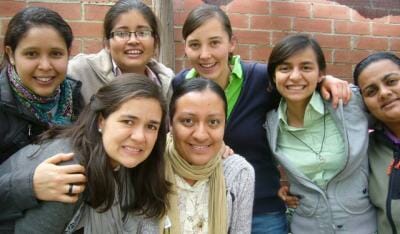
Sep 9, 2015 | Senza categoria
 The objectives set by the 4,000 consecrated youth who will meet in Rome from 15-19 September is to achieve a formative experience through the biblical, theological-charismatic and ecclesiological in-depth study on consecrated life, and to have a concrete possibility to share their reality, wishes and expectations, celebrating and testifying to the beauty of their vocation. They will come from all over the world (countries like Iran, the Philippines, Ivory Coast, Zimbabwe) to take part in the World Day of Young Religious. Organized by the Congregation for the Institutes of Consecrated Life and Societies of Apostolic Life, the event will be held in the context of the Year of Consecrated Life. The calendar is varied and intense. In the morning the youth will meet in the Paul VI Hall in the Vatican to listen and reflect on the themes about vocations, fraternal life and the missions. In the afternoon they will meet in various parts of Rome to hold dialogue and sharing sessions, and in the evening they will have the chance to participate in the itineraries offered: the path of the announcement (missionary night in the centre of Rome), the path of encounter (meetings with social-ecclesiastical organisations: Caritas, St. Egidio community, Talitha Kum), the path of beauty (guided tours of the Vatican Museums and the Sistine Chapel). Some open-air events with the public will be: the prayer vigil in St. Peter’s Square (15 September at 20.30) presided by the Archbishop Secretary of the Congregation for the Institutes of Consecrated Life, His Excellency, Bishop José Rodríguez Carballo; the mass in St. Peter’s Basilica (19 September at 11.30) presided by the Prefect of the Congregation, His Excellency, Cardinal João Braz de Aviz; soiree of music and testimonials in St. Peter’s Square (18 September at 20.30). There will also be a meeting with Pope Francis during the general audience on Wednesday, 16 September. On this occasion, all those present will receive as a gift, the book entitled Love means giving all – Testimonials, edited in seven languages. Published by the Vie Consacrée Association and in Italian by Città Nuova, the book, upon its release, was presented to the Holy Father who expressed his deep appreciation for the new, fresh and attractive vision of consecrated life, and encouraged its widespread diffusion. Click here to see the programme of the event Source: New City publishers
The objectives set by the 4,000 consecrated youth who will meet in Rome from 15-19 September is to achieve a formative experience through the biblical, theological-charismatic and ecclesiological in-depth study on consecrated life, and to have a concrete possibility to share their reality, wishes and expectations, celebrating and testifying to the beauty of their vocation. They will come from all over the world (countries like Iran, the Philippines, Ivory Coast, Zimbabwe) to take part in the World Day of Young Religious. Organized by the Congregation for the Institutes of Consecrated Life and Societies of Apostolic Life, the event will be held in the context of the Year of Consecrated Life. The calendar is varied and intense. In the morning the youth will meet in the Paul VI Hall in the Vatican to listen and reflect on the themes about vocations, fraternal life and the missions. In the afternoon they will meet in various parts of Rome to hold dialogue and sharing sessions, and in the evening they will have the chance to participate in the itineraries offered: the path of the announcement (missionary night in the centre of Rome), the path of encounter (meetings with social-ecclesiastical organisations: Caritas, St. Egidio community, Talitha Kum), the path of beauty (guided tours of the Vatican Museums and the Sistine Chapel). Some open-air events with the public will be: the prayer vigil in St. Peter’s Square (15 September at 20.30) presided by the Archbishop Secretary of the Congregation for the Institutes of Consecrated Life, His Excellency, Bishop José Rodríguez Carballo; the mass in St. Peter’s Basilica (19 September at 11.30) presided by the Prefect of the Congregation, His Excellency, Cardinal João Braz de Aviz; soiree of music and testimonials in St. Peter’s Square (18 September at 20.30). There will also be a meeting with Pope Francis during the general audience on Wednesday, 16 September. On this occasion, all those present will receive as a gift, the book entitled Love means giving all – Testimonials, edited in seven languages. Published by the Vie Consacrée Association and in Italian by Città Nuova, the book, upon its release, was presented to the Holy Father who expressed his deep appreciation for the new, fresh and attractive vision of consecrated life, and encouraged its widespread diffusion. Click here to see the programme of the event Source: New City publishers
Sep 9, 2015 | Non categorizzato
Consecrated men and women from all over the world (countries such as Iran, the Philippines, Ivory Coast, Zimbabwe) will be arriving in Rome to participate in the World Day of Young Religious. The event is organised by the Congregation for the Institutes of Consecrated Life and Societies of Apostolic Life within the context of the Year of Consecrated Life.
- Prayer vigil in St. Peter’s Square (15 September at 20.30)
- Meeting with Pope Francis during the general audience (Wednesday 16 September)
- Mass in St. Peter’s Basilica (19 September at30)
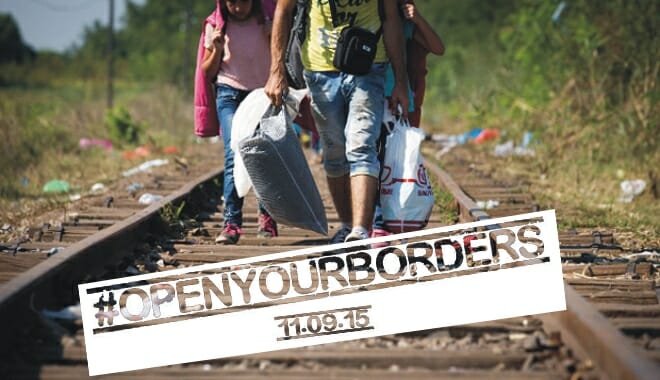
Sep 9, 2015 | Non categorizzato
 Reduce public funding of weapons; work at the root level of inequality, to counter misery; revise current models of governance; adopt a model of organised legality in opposition to criminality; guarantee universal primary education. These are the five main points of the appeal made by the young people of the Focolare’s Youth for a United World (YUW) to national parliaments, the European Parliament, the National Commissions of UNESCO and the United Nations. On March 12th of this year, 350 young people representing 39 countries presented their appeal to the Chamber of Deputies of the Italian Parliament. Their words have great resonance these days when faced by a humanitarian drama that can wait no longer for political reflections or national and international bureaucracies: “We are well aware of the global scene that is dotted by numerous conflicts, which cause migrations of people who are fleeing from violence, extreme poverty, hunger and social injustice in their own lands. These deep wounds concern all of us directly and urge us to find concrete solutions that are personally engaging.” They add: “Personal good will, will never produce universal brotherhood. We are convinced, in fact, that political action, directed at intervention into the causes of the conflicts and into the conditions that generate inequality, is required.” In their appeal the young people not only denounced these causes but presented explicitly clear requests. In these times when we are immersed in such a pressing humanitarian drama, the YUW also raises its voice to say: “We want peace and unity among the peoples of the world.” They invite everyone to spread the appeal, presenting it as soon as possible to international, national and local organisations (UN, UNESCO, Heads of State, Parliaments, mayors, religious leaders, etc.) They have chosen September 11th to “flood the social media with the Hashtag #OpenYourBorders.” They will also increase concrete activities and take part in those that are already underway through the United World Project. Photos, personal testimonies, events and videos in favour of welcome and peace can be posted on Facebook at ‘Dialogue to unlock’ or at info@unitedworldproject.org. The proceeds my be given to the local Caritas or else sent as a donation to the Youth for a United World Fund. https://www.youtube.com/watch?v=gcAv0Lr34bw
Reduce public funding of weapons; work at the root level of inequality, to counter misery; revise current models of governance; adopt a model of organised legality in opposition to criminality; guarantee universal primary education. These are the five main points of the appeal made by the young people of the Focolare’s Youth for a United World (YUW) to national parliaments, the European Parliament, the National Commissions of UNESCO and the United Nations. On March 12th of this year, 350 young people representing 39 countries presented their appeal to the Chamber of Deputies of the Italian Parliament. Their words have great resonance these days when faced by a humanitarian drama that can wait no longer for political reflections or national and international bureaucracies: “We are well aware of the global scene that is dotted by numerous conflicts, which cause migrations of people who are fleeing from violence, extreme poverty, hunger and social injustice in their own lands. These deep wounds concern all of us directly and urge us to find concrete solutions that are personally engaging.” They add: “Personal good will, will never produce universal brotherhood. We are convinced, in fact, that political action, directed at intervention into the causes of the conflicts and into the conditions that generate inequality, is required.” In their appeal the young people not only denounced these causes but presented explicitly clear requests. In these times when we are immersed in such a pressing humanitarian drama, the YUW also raises its voice to say: “We want peace and unity among the peoples of the world.” They invite everyone to spread the appeal, presenting it as soon as possible to international, national and local organisations (UN, UNESCO, Heads of State, Parliaments, mayors, religious leaders, etc.) They have chosen September 11th to “flood the social media with the Hashtag #OpenYourBorders.” They will also increase concrete activities and take part in those that are already underway through the United World Project. Photos, personal testimonies, events and videos in favour of welcome and peace can be posted on Facebook at ‘Dialogue to unlock’ or at info@unitedworldproject.org. The proceeds my be given to the local Caritas or else sent as a donation to the Youth for a United World Fund. https://www.youtube.com/watch?v=gcAv0Lr34bw
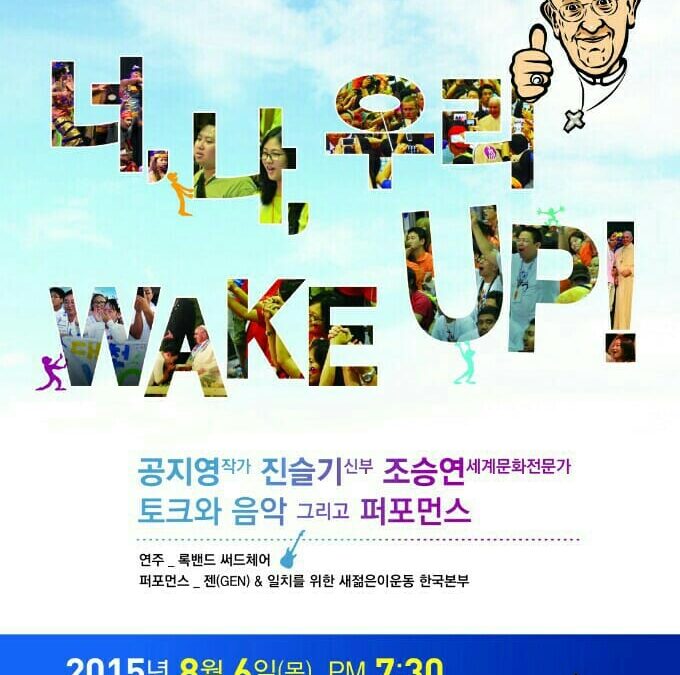
Sep 9, 2015 | Non categorizzato
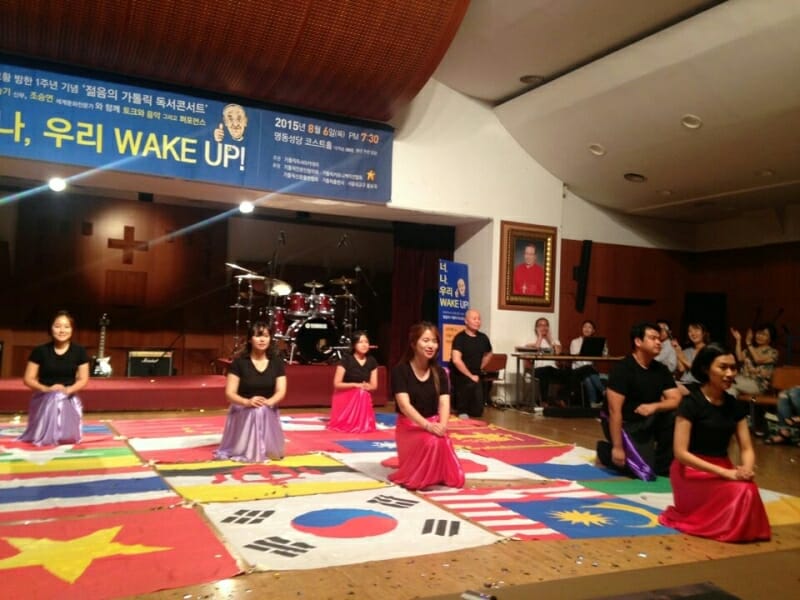 The Book Talk Concert is an event supported by the Korean Bishops Conference. It began three years ago with the goal of spreading the faith through monthly cultural events with popular artists and writers, and also newcomers. In August the Book Concert offered a special edition for young people lifting up the message of Pope Francis to today’s Korean society: “You, me, us – wake up!” The event was held at the beginning of the month in the Cathedral of Myeungdong where the Pope had celebrated the 2014 Mass for the Peace and Reconciliation of the Country . The main guests included authors such as: Kong Ji-young, a favourite author the young; Father Jin Seul-ki, a young priest; and Cho Seung-yeon, a young expert in global culture. ”Wake up” was the heart of the Pope’s message to the Asian young people gathered in Korea last year, and this year’s message was: Wake up and rise, get moving in favour society and your neighbours, especially the suffering.”
The Book Talk Concert is an event supported by the Korean Bishops Conference. It began three years ago with the goal of spreading the faith through monthly cultural events with popular artists and writers, and also newcomers. In August the Book Concert offered a special edition for young people lifting up the message of Pope Francis to today’s Korean society: “You, me, us – wake up!” The event was held at the beginning of the month in the Cathedral of Myeungdong where the Pope had celebrated the 2014 Mass for the Peace and Reconciliation of the Country . The main guests included authors such as: Kong Ji-young, a favourite author the young; Father Jin Seul-ki, a young priest; and Cho Seung-yeon, a young expert in global culture. ”Wake up” was the heart of the Pope’s message to the Asian young people gathered in Korea last year, and this year’s message was: Wake up and rise, get moving in favour society and your neighbours, especially the suffering.”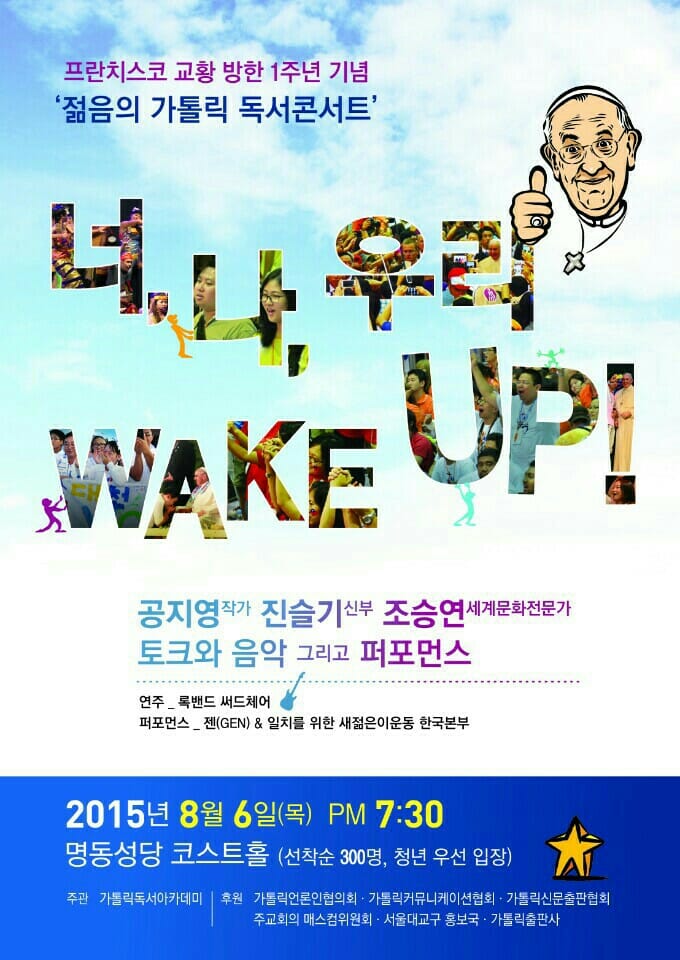 The writers talked about their personal awakenings, as they responded to the questions of the young people on how to face and overcome problems of faith and everyday life. There was a concert by Third Chair, followed by discussion and experiences. There was also a deep moment of prayer for peace, using the words of Pope Francis. Twenty flags from several Asian countries painted a scene of brotherhood and the overcoming of age-old hostilities among nations. One young man from the Focolare recounts: “I worked on two teams, scenario and art. We performed what we had prepared for last year’s Asian Youth Day, which concluded the Book Concert. There were difficulties and tension at times, but we always aimed for an atmosphere of mutual understanding, also between generations, knowing that this was the only way the event could be a gift for the young people who had been invited.” Another young volunteer commented: “Through our often hidden service, we were able to relive last year’s visit of the Pope and to convey that experience to many other young people.”
The writers talked about their personal awakenings, as they responded to the questions of the young people on how to face and overcome problems of faith and everyday life. There was a concert by Third Chair, followed by discussion and experiences. There was also a deep moment of prayer for peace, using the words of Pope Francis. Twenty flags from several Asian countries painted a scene of brotherhood and the overcoming of age-old hostilities among nations. One young man from the Focolare recounts: “I worked on two teams, scenario and art. We performed what we had prepared for last year’s Asian Youth Day, which concluded the Book Concert. There were difficulties and tension at times, but we always aimed for an atmosphere of mutual understanding, also between generations, knowing that this was the only way the event could be a gift for the young people who had been invited.” Another young volunteer commented: “Through our often hidden service, we were able to relive last year’s visit of the Pope and to convey that experience to many other young people.”
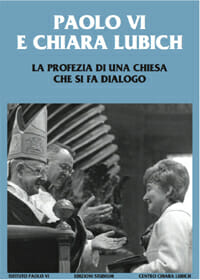
Sep 8, 2015 | Non categorizzato
 The presentation of the book compiled in co-partnership between Paul VI Institute and Chiara Lubich Centre and published by Stadium Press, will be held on September 27, 2015 at the Mariapolis Centre of Castel Gandolfo, Italy, Via S.G.Battisti da La Salle,. This date has been chosen because of its proximity to the anniversary of Blessed Paul VI, which is celebrated on September 26th. There will be two sessions in the programme. Following the opening remarks by Maria Voce, President of the Focolare Movement, and by Father Angelo Maffeis, President of the Paul VI Institute, a roundtable discussion will begin with Bishop Vincenzo Zani, Secretary of the Pontifical Council for Catholic Education; Dr. Giulia Paola Di Nicola and Bishop Marcello Semeraro, bishop of Albano Laziale, Italy; and Alessandro De Carolis moderator. Meditazione in musica sulla vita del beato Paolo VI.This will be follwed by a concert featuring the piano music of Chopin, played by Father Carlo José Seno, titled Open to the World. Musical meditations on the life of Blessed Paul VI.
The presentation of the book compiled in co-partnership between Paul VI Institute and Chiara Lubich Centre and published by Stadium Press, will be held on September 27, 2015 at the Mariapolis Centre of Castel Gandolfo, Italy, Via S.G.Battisti da La Salle,. This date has been chosen because of its proximity to the anniversary of Blessed Paul VI, which is celebrated on September 26th. There will be two sessions in the programme. Following the opening remarks by Maria Voce, President of the Focolare Movement, and by Father Angelo Maffeis, President of the Paul VI Institute, a roundtable discussion will begin with Bishop Vincenzo Zani, Secretary of the Pontifical Council for Catholic Education; Dr. Giulia Paola Di Nicola and Bishop Marcello Semeraro, bishop of Albano Laziale, Italy; and Alessandro De Carolis moderator. Meditazione in musica sulla vita del beato Paolo VI.This will be follwed by a concert featuring the piano music of Chopin, played by Father Carlo José Seno, titled Open to the World. Musical meditations on the life of Blessed Paul VI.
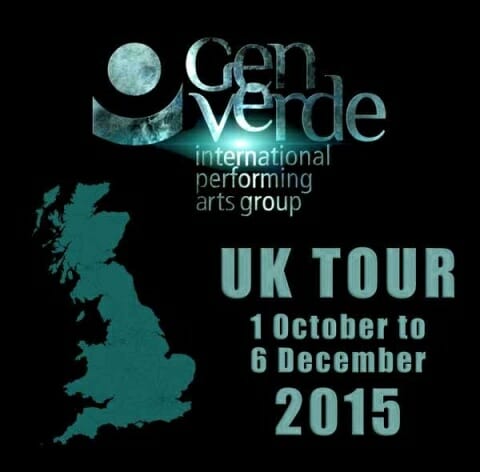
Sep 8, 2015 | Non categorizzato
 More information:
More information:
See Focolare UK website for schedules:
Gen Verde UK Tour Facebook:
GenVerdeScotland2015 https://www.youtube.com/watch?v=llkkHKzywrM
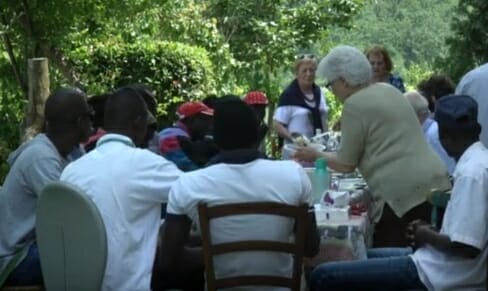
Sep 7, 2015 | Focolare Worldwide
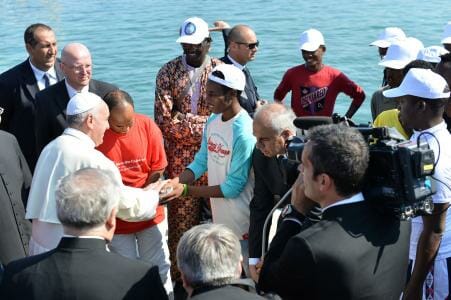 “Often we are closed in ourselves and create many inaccessible and inhospitable islands. Even the most elementary human relations sometimes create realities that are unable to open to each other: a closed couple, a closed family, a closed group, a closed parish, a closed homeland… And this does not come from God!” Pope Francis’s words at the Angelus on 6th September resound strongly, in his call for concrete action to support the hundreds of thousands of refugees forced to leave their homes: “As we draw close to the Jubilee of Mercy, I appeal to parishes, to religious communities, to monasteries and convents and all the shrines of Europe to show the concreteness of the Gospel and take in a refugee family”. In the name of the Focolare Movement, Maria Voce has expressed “gratitude” for this courageous and practical appeal by the Holy Father” and stressed the decision to do what he asks by “opening the doors of our houses and centres to receive people”.
“Often we are closed in ourselves and create many inaccessible and inhospitable islands. Even the most elementary human relations sometimes create realities that are unable to open to each other: a closed couple, a closed family, a closed group, a closed parish, a closed homeland… And this does not come from God!” Pope Francis’s words at the Angelus on 6th September resound strongly, in his call for concrete action to support the hundreds of thousands of refugees forced to leave their homes: “As we draw close to the Jubilee of Mercy, I appeal to parishes, to religious communities, to monasteries and convents and all the shrines of Europe to show the concreteness of the Gospel and take in a refugee family”. In the name of the Focolare Movement, Maria Voce has expressed “gratitude” for this courageous and practical appeal by the Holy Father” and stressed the decision to do what he asks by “opening the doors of our houses and centres to receive people”.

Florence (Italy): Bed & Breakfast project for migrants
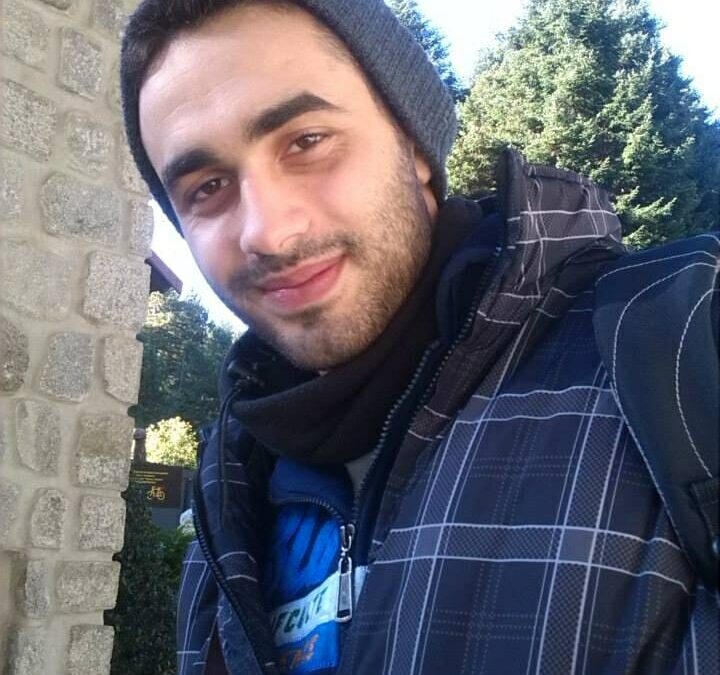
Sep 7, 2015 | Non categorizzato
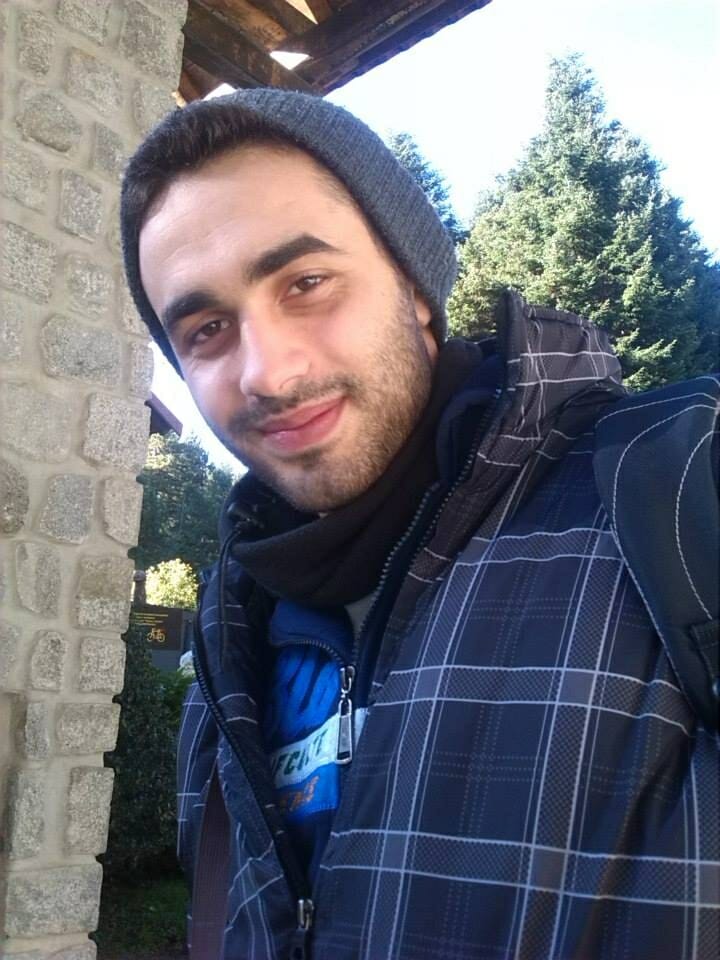 “For over 3 months now I have been doing my apprenticeship in pediatric oncology, in a ward where you never know if the children you are assisting today will still be there tomorrow. It is absolutely not easy to live in continuous contact with the suffering of the innocent, since it gets to the point of putting to the test one’s decision to study pediatric nursing. On the first day, I was ready for anything. But once I set foot in the ward, I came face to face with a beautiful little girl. She was afflicted by one of the worst types of malignant tumours, at the terminal stage. I had no idea at all of how I was to go about it. I had never ever felt so useless and incapable, and was convinced that there was nothing useful I could do for her. There are also other children in the ward, and the day seemed to pass very quickly, but every time I entered the little girl’s room I would feel the same sensation of helplessness and inadequacy. It was already 2 p.m.- time to end my shift. I felt I could not leave without doing something for her. But what? In trying to put in practice the spirituality of unity, I had experimented that what matters in love is to love. That you do not need to do sensational things, just start with a small thing, without expecting great results. I felt I had done all I could for that little girl. So why was I feeling I could do more? In the morning, upon entering the hospital, I had noted that there was a chapel. Perhaps, I thought, loving that child meant praying for her. So I sat on one of the last pews, but did not know what to ask for her. I just sat in silence, with a great, oppressing pain in my heart. Little by little I began to feel that Jesus was taking all my suffering onto himself. With a free heart I could then entrust the child to Him and then go once again to greet her and her mother, to make them feel my closeness and great support. From that moment on, I continued going to that chapel often. It was there that I found the light to face and also comprehend in some way, the mystery of the suffering of the innocent, which we so frequently encounter. And it is the Crucified and Risen Christ who gives me the strength and the right attitude with which to approach the children and their relatives. Often I do not understand what I should do for them, but then the answer never fails to come. One day a 10 year-old girl was interned. She had been tossed from one hospital to another. The suspicion was that she had a serious blood disease, which was confirmed, and all of a sudden, she and her mother collapsed as if they had been hit by the avalanche of a diagnosis that did not offer a way out. I felt the importance of standing by them and taking on their pain, helping them as I could, even if I had to stay a few hours more in the hospital. During the day I could not do much, but when I had some free time from my duties, I would go to their room, to listen to and reassure the mother and let the child play a bit. And every time I it seems like a veil of serenity returns to their eyes, a new hope in facing the trials awaiting them. I try to live this way in many other situations, taking every possibility to stay a bit with “my” kids, not only to administer their treatments but to see them smile and face with serenity their difficult paths.”
“For over 3 months now I have been doing my apprenticeship in pediatric oncology, in a ward where you never know if the children you are assisting today will still be there tomorrow. It is absolutely not easy to live in continuous contact with the suffering of the innocent, since it gets to the point of putting to the test one’s decision to study pediatric nursing. On the first day, I was ready for anything. But once I set foot in the ward, I came face to face with a beautiful little girl. She was afflicted by one of the worst types of malignant tumours, at the terminal stage. I had no idea at all of how I was to go about it. I had never ever felt so useless and incapable, and was convinced that there was nothing useful I could do for her. There are also other children in the ward, and the day seemed to pass very quickly, but every time I entered the little girl’s room I would feel the same sensation of helplessness and inadequacy. It was already 2 p.m.- time to end my shift. I felt I could not leave without doing something for her. But what? In trying to put in practice the spirituality of unity, I had experimented that what matters in love is to love. That you do not need to do sensational things, just start with a small thing, without expecting great results. I felt I had done all I could for that little girl. So why was I feeling I could do more? In the morning, upon entering the hospital, I had noted that there was a chapel. Perhaps, I thought, loving that child meant praying for her. So I sat on one of the last pews, but did not know what to ask for her. I just sat in silence, with a great, oppressing pain in my heart. Little by little I began to feel that Jesus was taking all my suffering onto himself. With a free heart I could then entrust the child to Him and then go once again to greet her and her mother, to make them feel my closeness and great support. From that moment on, I continued going to that chapel often. It was there that I found the light to face and also comprehend in some way, the mystery of the suffering of the innocent, which we so frequently encounter. And it is the Crucified and Risen Christ who gives me the strength and the right attitude with which to approach the children and their relatives. Often I do not understand what I should do for them, but then the answer never fails to come. One day a 10 year-old girl was interned. She had been tossed from one hospital to another. The suspicion was that she had a serious blood disease, which was confirmed, and all of a sudden, she and her mother collapsed as if they had been hit by the avalanche of a diagnosis that did not offer a way out. I felt the importance of standing by them and taking on their pain, helping them as I could, even if I had to stay a few hours more in the hospital. During the day I could not do much, but when I had some free time from my duties, I would go to their room, to listen to and reassure the mother and let the child play a bit. And every time I it seems like a veil of serenity returns to their eyes, a new hope in facing the trials awaiting them. I try to live this way in many other situations, taking every possibility to stay a bit with “my” kids, not only to administer their treatments but to see them smile and face with serenity their difficult paths.”
Sep 6, 2015 | Non categorizzato
In April, a huge fraud by officials of the Tax Administration Service in collusion with senior level political leaders was uncovered. The close collaboration between the Public Ministry and the International Commission Against Impunity in Guatemala (CICIG) led to dozens of people being brought to trial for corruption, including the Vice President. It raised a wave of indignation among citizens, which continues to grow. In the midst of those events, Raúl e Cecilia Di Lascio from Argentina attended a meeting with local members of the Focolare community on the weekend of August 22-23. Raúl is an architect and Economy of Commuion business owner, and Cecilia is a member of the international commission of the Political Movement for Unity. During their discussions they delved into topics concerning politics and the economy in the light of the charism of unity. Meeting during a period of such collective effervescence, transformed the moments of discussion among citizens of all ages and backgrounds an opportunity to be open to a field that is generally looked upon negatively. Chiara Lubich’s vision of politics when she founded the Political Movement for Unity: the great values that political action manifests when it is seen as service in favour of the common good. Looking at politics through the lens of fraternity, which liberates courageous and socially committed attitudes, filled the hopes of the participants, supported by the exchange of experiences that are currently underway in several parts of the world. In the days that followed Guatemalan society held a mass protest demanding the resignation of the President – also requested by Catholic and other Christian church leaders – after connections to corruption were uncovered. Many businesses, schools and universities closed in order to allow people to take part in the protests, including the Mariapolis Centre and Fiore College. The large concentration of people in the Central Park of Guatemala became a solid mass: more than 100,000 people gathered in the time span of a day. Will states: “You can feel that there is a void in the heart of Guatemala that was not filled. We need to unite so that a change can come.” The fact of so many people peacefully demonstrating did not go unappreciated: “The nice thing is that even businesses closed, in order to allow people to take part in the demonstrations. As a Guatemalan I trembled as we cried ‘Guatemala, Guatemala’ or sang the national anthem.” Lina, a teacher states: “I saw a new sense of responsibility. We don’t want to allow the opportunity to change things, to pass us by, knowing that this time it’s possible.” For many it was encouraging to see entire families who were not afraid to bring along their children. “Rich families and poor families together,” Sandra remarks, “indigenous peoples, young people, children and adults – all of them together, and students prepared to resist violence in order to reach the common goal!” the goal that Alex calls: “a better country.” The latest news is that the President of the Republic lost immunity and resigned “for the good of society” and is now under arrest. On September 6 citizens will be invited to the election booths and all indications are that things will unfold in a peaceful and democratic way.
By Filippo Casabianca, Guatemala City
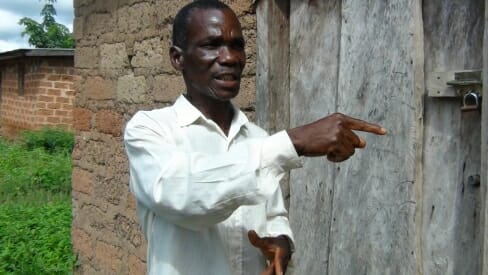
Sep 5, 2015 | Focolare Worldwide
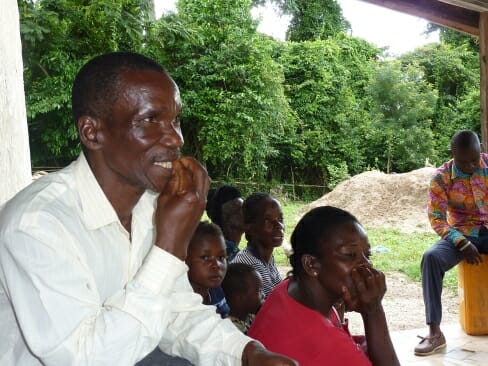 Seven kilometres into the forest, reachable on foot or by baka (van), which is the only thing capable of travelling over the mud and holes during the rainy season, lies the village of Glolé. It is one of eighteen Cantons in the region of Tonkpi, northwest of the Ivory Coast. There is no electricity, and therefore no television, internet or shops. Many of the people in that region have been touched by Chiara Lubich’s ideal of brotherhood. They live it in their daily lives beginning with putting into practice the Word of the Gospel; even the social and political structures have been gradually enriched and illuminated by the experience. Gilbert Gba Zio is a community leader, catechist and head of a family: “One day we asked ourselves what we should do for our little village,” he said during a recent meeting of the Economy of Communion in Nairobi, Kenya. “We saw that living out the Word of the Gospel could provide some guidelines.” Here are some of the concrete results of that decision. House for the strangers (guests). For Glolé the local saying “Kwayeko,” (We have a place for you to stay), was not merely a saying. “There are many people who walk through our area, they walk many miles and have sleep on the roadside until they reach their destination village. We always give our bed to our guests every time. This is also the Gospel’s way, but we said to ourselves: “Couldn’t we do more? Why don’t we build small houses, so when anybody arrives, we can offer them somewhere to sleep? So we began to make bricks, singing songs of joy. There were some bricklayers in our group and we built twelve small houses with one bedroom and a small living room in each. Now we can say to the strangers who arrive: “We have a house, come and sleep there. There is always some food, too, since we are all farmers. In this way, we took the first steps.
Seven kilometres into the forest, reachable on foot or by baka (van), which is the only thing capable of travelling over the mud and holes during the rainy season, lies the village of Glolé. It is one of eighteen Cantons in the region of Tonkpi, northwest of the Ivory Coast. There is no electricity, and therefore no television, internet or shops. Many of the people in that region have been touched by Chiara Lubich’s ideal of brotherhood. They live it in their daily lives beginning with putting into practice the Word of the Gospel; even the social and political structures have been gradually enriched and illuminated by the experience. Gilbert Gba Zio is a community leader, catechist and head of a family: “One day we asked ourselves what we should do for our little village,” he said during a recent meeting of the Economy of Communion in Nairobi, Kenya. “We saw that living out the Word of the Gospel could provide some guidelines.” Here are some of the concrete results of that decision. House for the strangers (guests). For Glolé the local saying “Kwayeko,” (We have a place for you to stay), was not merely a saying. “There are many people who walk through our area, they walk many miles and have sleep on the roadside until they reach their destination village. We always give our bed to our guests every time. This is also the Gospel’s way, but we said to ourselves: “Couldn’t we do more? Why don’t we build small houses, so when anybody arrives, we can offer them somewhere to sleep? So we began to make bricks, singing songs of joy. There were some bricklayers in our group and we built twelve small houses with one bedroom and a small living room in each. Now we can say to the strangers who arrive: “We have a house, come and sleep there. There is always some food, too, since we are all farmers. In this way, we took the first steps. 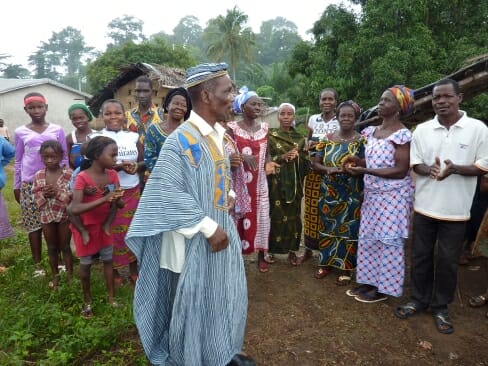 House of Health. During the rainy season it is difficult to reach the paved road and travel the additional 30 km to the city of Man, which is the closest urban centre. This makes it quite difficult in the case of a medical emergency. “One day there was a woman who was giving birth and it was a complicated labour,” Gilbert recounts. “We took her to the asphalt road in a wheelbarrow to get her in a car. Thank God, the woman was saved; but it was tough. Therefore it was necessary to build a house of health and bring some traditional midwives to help women in labour. But where to find the money? We have tenant farming in our region: the proprietor of a piece of land can give it to someone else to cultivate for one season. In the end, the harvest is divided in two equal parts and shared between them. Our community took a coffee plantation: the men pulled the weed out from among the plants, the women harvested the coffee. With the money we could buy the cement and build the House of Health.
House of Health. During the rainy season it is difficult to reach the paved road and travel the additional 30 km to the city of Man, which is the closest urban centre. This makes it quite difficult in the case of a medical emergency. “One day there was a woman who was giving birth and it was a complicated labour,” Gilbert recounts. “We took her to the asphalt road in a wheelbarrow to get her in a car. Thank God, the woman was saved; but it was tough. Therefore it was necessary to build a house of health and bring some traditional midwives to help women in labour. But where to find the money? We have tenant farming in our region: the proprietor of a piece of land can give it to someone else to cultivate for one season. In the end, the harvest is divided in two equal parts and shared between them. Our community took a coffee plantation: the men pulled the weed out from among the plants, the women harvested the coffee. With the money we could buy the cement and build the House of Health.  Children suffering from malnutrition. “There were children dying in the village and we did not know that we could actually save them. In the Focolare’s permanent Mariapolis, there is a centre taking care of them. We explained the problem to them and started bringing the children in. We were surprised to see that the children were getting healed in that place without any medications. They taught us how to feed them. One day, the head of the centre told us: ‘If you want, we can go to your place.’ In our culture a child belongs to the whole village! They explained to us how to prevent and how to cure this illness. We started to change our food related habits, and we learned that it is necessary to eat beans, peanuts, mushrooms . . . and we learned how to conserve food so we could give our children to eat even in times of famine.” Rice Bank. “We store the rice in smaller granaries, but they are frequently ‘visited’ by thieves and mice. So, we built a rammed earth house where everyone sent what they had. In the beginning, we were only 30 people. Nowadays, some farmers who are not members of our group have joined us, too, and 110 people are bringing their sacks of rice keep in our bank. In the months of March and April, during the sowing season, they take what they need for sowing and set aside what they need for feeding their children. At the right time, when the prices are good, they take away their rice and sell it. Everyone donates a part of their harvest according to their conscience and deposits it in the bank as a contribution to compensate for the needs of the community and for those who guard the rice bank.” One village is not enough. “‘Couldn’t you come to us with your business?’ the people of the neighbouring villages said to us. Today there are 13 villages that live like us in Glolé. Unity is our wealth. One day, there came an outside who wanted to help us make a well for the village. But we could not agree about the location of it. Had we insisted on having a well, it would have brought division to the village. So we preferred not to accept this gift in order to keep the unity amongst us. See “Economia di Comunione – una cultura nuova” n.41 – Eitorial insert from Città Nuova n.13/14 – 2015 – luglio 2015 See Nouvelle Cité Afrique Juillet 2015 Glolè (Ivory Coast): Congress EoC 2015
Children suffering from malnutrition. “There were children dying in the village and we did not know that we could actually save them. In the Focolare’s permanent Mariapolis, there is a centre taking care of them. We explained the problem to them and started bringing the children in. We were surprised to see that the children were getting healed in that place without any medications. They taught us how to feed them. One day, the head of the centre told us: ‘If you want, we can go to your place.’ In our culture a child belongs to the whole village! They explained to us how to prevent and how to cure this illness. We started to change our food related habits, and we learned that it is necessary to eat beans, peanuts, mushrooms . . . and we learned how to conserve food so we could give our children to eat even in times of famine.” Rice Bank. “We store the rice in smaller granaries, but they are frequently ‘visited’ by thieves and mice. So, we built a rammed earth house where everyone sent what they had. In the beginning, we were only 30 people. Nowadays, some farmers who are not members of our group have joined us, too, and 110 people are bringing their sacks of rice keep in our bank. In the months of March and April, during the sowing season, they take what they need for sowing and set aside what they need for feeding their children. At the right time, when the prices are good, they take away their rice and sell it. Everyone donates a part of their harvest according to their conscience and deposits it in the bank as a contribution to compensate for the needs of the community and for those who guard the rice bank.” One village is not enough. “‘Couldn’t you come to us with your business?’ the people of the neighbouring villages said to us. Today there are 13 villages that live like us in Glolé. Unity is our wealth. One day, there came an outside who wanted to help us make a well for the village. But we could not agree about the location of it. Had we insisted on having a well, it would have brought division to the village. So we preferred not to accept this gift in order to keep the unity amongst us. See “Economia di Comunione – una cultura nuova” n.41 – Eitorial insert from Città Nuova n.13/14 – 2015 – luglio 2015 See Nouvelle Cité Afrique Juillet 2015 Glolè (Ivory Coast): Congress EoC 2015

 The objectives set by the 4,000 consecrated youth who will meet in Rome from 15-19 September is to achieve a formative experience through the biblical, theological-charismatic and ecclesiological in-depth study on consecrated life, and to have a concrete possibility to share their reality, wishes and expectations, celebrating and testifying to the beauty of their vocation. They will come from all over the world (countries like Iran, the Philippines, Ivory Coast, Zimbabwe) to take part in the World Day of Young Religious. Organized by the Congregation for the Institutes of Consecrated Life and Societies of Apostolic Life, the event will be held in the context of the Year of Consecrated Life. The calendar is varied and intense. In the morning the youth will meet in the Paul VI Hall in the Vatican to listen and reflect on the themes about vocations, fraternal life and the missions. In the afternoon they will meet in various parts of Rome to hold dialogue and sharing sessions, and in the evening they will have the chance to participate in the itineraries offered: the path of the announcement (missionary night in the centre of Rome), the path of encounter (meetings with social-ecclesiastical organisations: Caritas, St. Egidio community, Talitha Kum), the path of beauty (guided tours of the Vatican Museums and the Sistine Chapel). Some open-air events with the public will be: the prayer vigil in St. Peter’s Square (15 September at 20.30) presided by the Archbishop Secretary of the Congregation for the Institutes of Consecrated Life, His Excellency, Bishop José Rodríguez Carballo; the mass in St. Peter’s Basilica (19 September at 11.30) presided by the Prefect of the Congregation, His Excellency, Cardinal João Braz de Aviz; soiree of music and testimonials in St. Peter’s Square (18 September at 20.30). There will also be a meeting with Pope Francis during the general audience on Wednesday, 16 September. On this occasion, all those present will receive as a gift, the book entitled Love means giving all – Testimonials, edited in seven languages. Published by the Vie Consacrée Association and in Italian by Città Nuova, the book, upon its release, was presented to the Holy Father who expressed his deep appreciation for the new, fresh and attractive vision of consecrated life, and encouraged its widespread diffusion. Click here to see the programme of the event Source: New City publishers
The objectives set by the 4,000 consecrated youth who will meet in Rome from 15-19 September is to achieve a formative experience through the biblical, theological-charismatic and ecclesiological in-depth study on consecrated life, and to have a concrete possibility to share their reality, wishes and expectations, celebrating and testifying to the beauty of their vocation. They will come from all over the world (countries like Iran, the Philippines, Ivory Coast, Zimbabwe) to take part in the World Day of Young Religious. Organized by the Congregation for the Institutes of Consecrated Life and Societies of Apostolic Life, the event will be held in the context of the Year of Consecrated Life. The calendar is varied and intense. In the morning the youth will meet in the Paul VI Hall in the Vatican to listen and reflect on the themes about vocations, fraternal life and the missions. In the afternoon they will meet in various parts of Rome to hold dialogue and sharing sessions, and in the evening they will have the chance to participate in the itineraries offered: the path of the announcement (missionary night in the centre of Rome), the path of encounter (meetings with social-ecclesiastical organisations: Caritas, St. Egidio community, Talitha Kum), the path of beauty (guided tours of the Vatican Museums and the Sistine Chapel). Some open-air events with the public will be: the prayer vigil in St. Peter’s Square (15 September at 20.30) presided by the Archbishop Secretary of the Congregation for the Institutes of Consecrated Life, His Excellency, Bishop José Rodríguez Carballo; the mass in St. Peter’s Basilica (19 September at 11.30) presided by the Prefect of the Congregation, His Excellency, Cardinal João Braz de Aviz; soiree of music and testimonials in St. Peter’s Square (18 September at 20.30). There will also be a meeting with Pope Francis during the general audience on Wednesday, 16 September. On this occasion, all those present will receive as a gift, the book entitled Love means giving all – Testimonials, edited in seven languages. Published by the Vie Consacrée Association and in Italian by Città Nuova, the book, upon its release, was presented to the Holy Father who expressed his deep appreciation for the new, fresh and attractive vision of consecrated life, and encouraged its widespread diffusion. Click here to see the programme of the event Source: New City publishers 







 “Often we are closed in ourselves and create many inaccessible and inhospitable islands. Even the most elementary human relations sometimes create realities that are unable to open to each other: a closed couple, a closed family, a closed group, a closed parish, a closed homeland… And this does not come from God!” Pope Francis’s
“Often we are closed in ourselves and create many inaccessible and inhospitable islands. Even the most elementary human relations sometimes create realities that are unable to open to each other: a closed couple, a closed family, a closed group, a closed parish, a closed homeland… And this does not come from God!” Pope Francis’s 
 “For over 3 months now I have been doing my apprenticeship in pediatric oncology, in a ward where you never know if the children you are assisting today will still be there tomorrow. It is absolutely not easy to live in continuous contact with the suffering of the innocent, since it gets to the point of putting to the test one’s decision to study pediatric nursing. On the first day, I was ready for anything. But once I set foot in the ward, I came face to face with a beautiful little girl. She was afflicted by one of the worst types of malignant tumours, at the terminal stage. I had no idea at all of how I was to go about it. I had never ever felt so useless and incapable, and was convinced that there was nothing useful I could do for her. There are also other children in the ward, and the day seemed to pass very quickly, but every time I entered the little girl’s room I would feel the same sensation of helplessness and inadequacy. It was already 2 p.m.- time to end my shift. I felt I could not leave without doing something for her. But what? In trying to put in practice the
“For over 3 months now I have been doing my apprenticeship in pediatric oncology, in a ward where you never know if the children you are assisting today will still be there tomorrow. It is absolutely not easy to live in continuous contact with the suffering of the innocent, since it gets to the point of putting to the test one’s decision to study pediatric nursing. On the first day, I was ready for anything. But once I set foot in the ward, I came face to face with a beautiful little girl. She was afflicted by one of the worst types of malignant tumours, at the terminal stage. I had no idea at all of how I was to go about it. I had never ever felt so useless and incapable, and was convinced that there was nothing useful I could do for her. There are also other children in the ward, and the day seemed to pass very quickly, but every time I entered the little girl’s room I would feel the same sensation of helplessness and inadequacy. It was already 2 p.m.- time to end my shift. I felt I could not leave without doing something for her. But what? In trying to put in practice the

